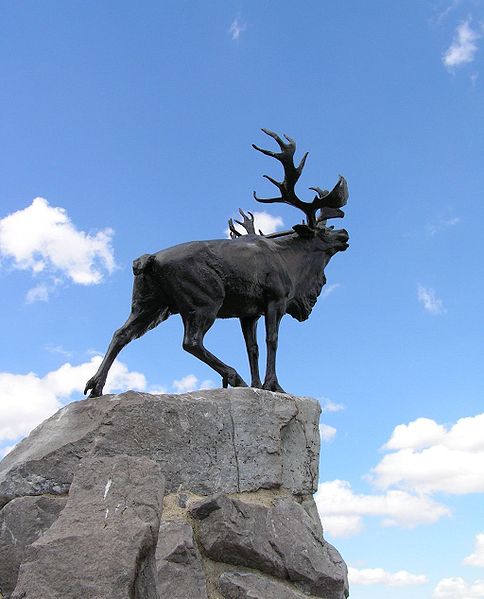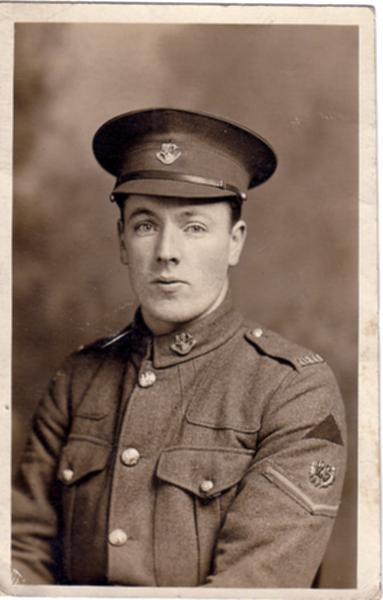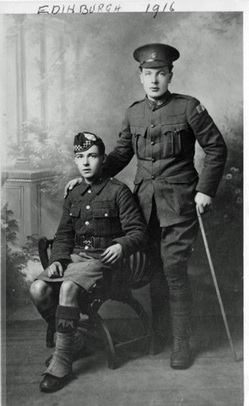July 1st, 2016 marks the one hundredth anniversary of Beaumont Hamel

On this day in 1916, the First Regiment of the Newfoundland Regiment took part in the opening attacks of the Battle of the Somme. Eight hundred and one officers and men went over the top. Within thirty minutes, the regiment was all but wiped out. Only 68 responded to roll call. The rest were killed, wounded or reported missing.
My grandfather, Lance-corporal James Ryan, took part in this attack and was one of the 68 to respond to roll call. At least, that was what I understood from listening to him and others when I was growing up. As the 100th anniversary approached, a list of the 68 was circulating and I was astonished to find his name missing.
With a little research, I learned that the number is actually an arbitrary figure. In reality, no one knows exactly how many showed up to roll call or even how many took part in the attack since the reserve was reported to have gone over the top on seeing what was happening to their brothers in arms.
I’m not surprised. From my experience in the Armed Forces before the widespread use of computers, keeping perfect records was difficult. To keep reliable records in the chaos of The Somme would have been next to impossible.
We have no doubt that my grandfather took part in the battle and finished the day helping to remove dead and wounded from the field. A series of articles on his experiences was published in the Colonial Commerce Magazine in 1918 and I think the best way to recall his experience is in his own words as published in the April, 1918 (Vol XXVII, No. 5) edition:
South African, Australian and Imperial gunners stripped to the waist, poured tons and tons of metal into the enemy’s defenses for sixty minutes, giving the whole countryside the appearance of a boiling cauldron. Shortly before nine the great mine went up with terrific force, sending a village and many yards of German trench skywards. Then over went the front lines and we waited anxiously for news of their success. Many machine guns were firing but little did we know they were German.
An officer came rushing over the top of our trench, his face and hands bled badly and his clothes were covered with mud. “The line is gone, boys,” he said, “the brigade is wiped out.”
“Good God!” our officer exclaimed, “and we are to attack in two minutes.”

I am not sure that the Colonel knew, but the orders were not changed. A bugler on our left jumped up and blew the “advance” and we scramble out of the trench to try our luck. The machine guns were taking it easy for a bit, but when two thousand heads sprang over the ridge they were at it again with renewed vigor. Each gunner picked his section and in a few minutes the First Regiment from Terra Nova lay dead and dying in No-man’s-land.
Our own wire was not sufficiently cut and we were at a loss to find a gap to get through. The wire cutters of our section desperately strived to break away, but the “typewriters” were too quick. French was hit clean through the head and lay over on the wire; Sergt. Jack Robinson was knocked senseless and to all appearances dead.
One by one the boys were killed or wounded, and then the rear sections came piling in, just in time to receive a great shell that burst in the centre of the bunch. A few of the chaps were blown into little pieces, others were badly wounded, but the strong force of concussion altered my mental faculty for the remainder of that day. I crawled into the front line but Fritz had changed this into a furnace. Great high explosives and shrapnel tore up the traverses; sand bags were blown up and the shelters beaten down. Dead men were lying everywhere, looking ghastly and gruesome. How I got away from it all I don’t know; I am sure it was not common sense or presence of mind that saved me; I just fooled out of it somehow.

My grandfather was #38 of the First Five Hundred and was underage when he enlisted. He fought and was wounded in Gallipoli in November, 1915, and sent to England to recuperate.
He was reassigned to his unit in March, 1916 and participated in the Somme and Ypres where he was wounded a second time in November, 1916. He returned to England and was discharged due to his wounds in July, 1917.
He passed away in 1982.
And to me, he will always be the sixty-ninth man.

That was a wonderful tribute. So ghastly & such a testament against war. Your writing is as special as your photography. Thank you, Janie